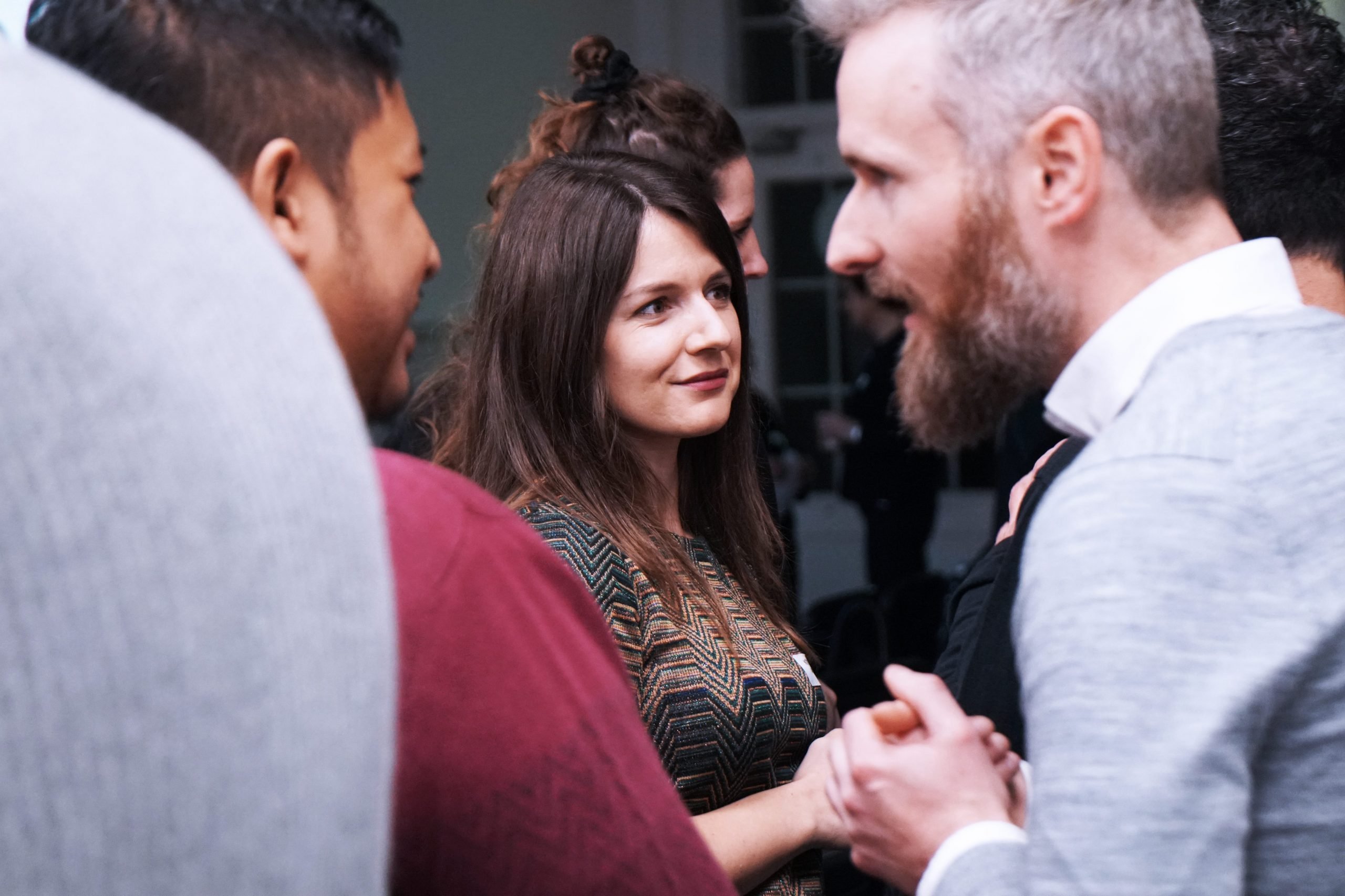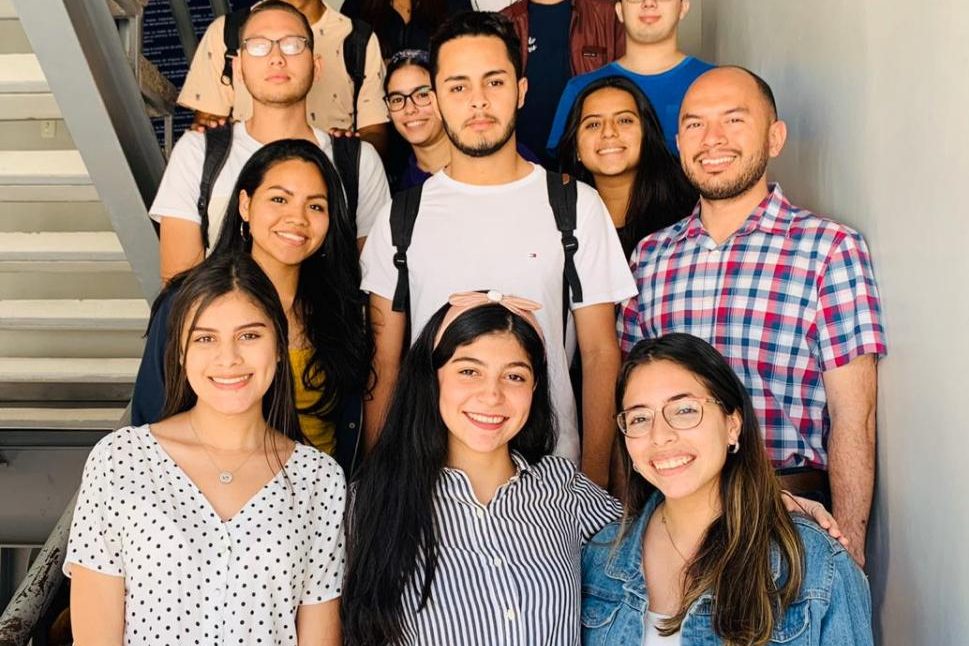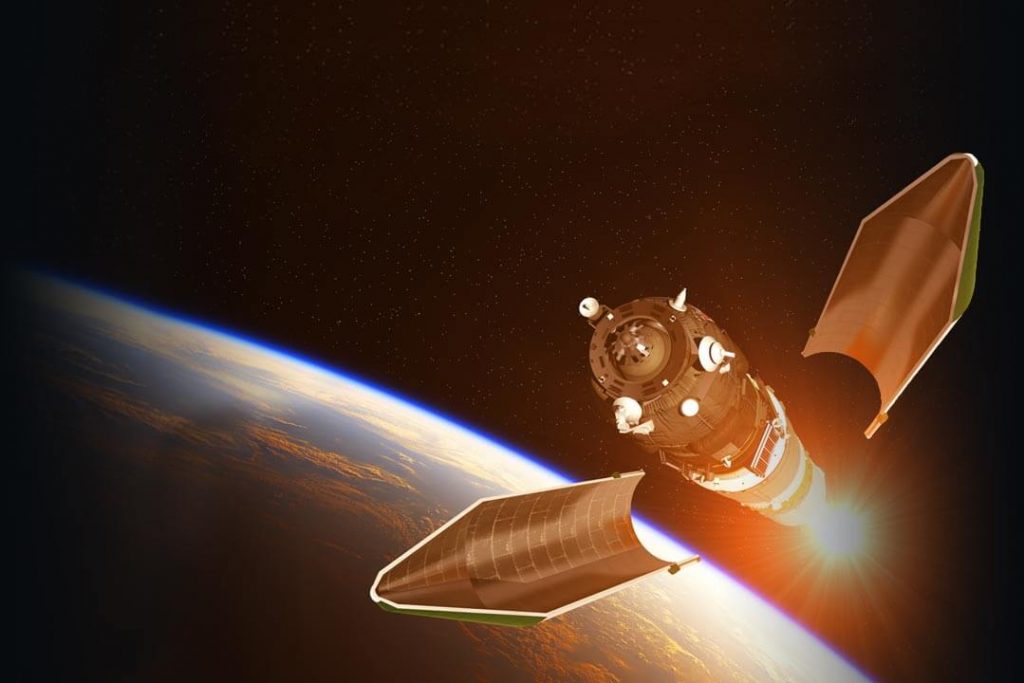We engage in projects with different stakeholders. Most importantly, we manage the EXIST project at ESCP Business School in Berlin.
EXIST-Potentiale at ESCP
EXIST-Potentiale is a Germany-wide funding measure by the BMWi, the German Federal Ministry for Economic Affairs and Energy, and lastly the European Social Fund. Its aim is to implement a start-up culture in universities. Further, its goal is to create the necessary framework to support innovative and high-growth science start-ups. In the course of this project, ESCP will set up an internationalization school. It offers general as well as country-specific courses and workshops, international team matching events and alumni angel nights. Additionally, we support founders directly. We provide them with coworking and office spaces, consulting and host country-specific ecosystem events. Moreover, we will create an internationalization network with other leading universities for startups. The aim is to expand the entrepreneurship potential of ESCP and also to develop incubation activities that support start-ups in their internationalization efforts.
Center for DS:E

Part of the Jean-Baptiste Say Institute team from Berlin and other researchers have started the Center for Design Science in Entrepreneurship (DS:E). They believe that design science enables entrepreneurship scholars to combine cutting-edge research with real world impact. They motivate entrepreneurship scholars to engage in design science research in three ways:
First, the Center brings together the world’s leading design science experts from different fields to further develop the design science research paradigm for the entrepreneurship field. Second, it educates entrepreneurship scholars in doing design science research that can be published in the best journals. Third, it serves as a platform to match firms’ entrepreneurial challenges with scholars who design solutions based on the best scientific knowledge available. For this purpose, the DS:E holds a conference on design science research in entrepreneurship once a year. Moreover, it offers courses both offline as well as online, and develops a platform to match firms’ entrepreneurial challenges with top nodge scholars.
LatAm

Our team in Madrid is engaged in international cooperation for development projects as well as consultancy missions in Latin America funded by public and private institutions. Current missions include the following:
“Especialización en Gestión de Iniciativas Económicas Colaborativas y Economía Social en Centroamérica (Proyecto INICIA)”, funded by EU ERASMUS Plus (2019-2021)
“IRUDESCA. Integración Regional, Universidad y Desarrollo Sostenible en Centroamérica”, funded by EU ERASMUS Plus (2017-2019)
“Monitoring and impact system of destination sustainability projects (SSIP-RIU)” with RIU Hotels & Resorts in Cancún, Mexico (2019-2020)
ASCenSIon

The Jean-Baptiste Say Institute is delivering entrepreneurship and tech transfer tranings to ASCenSIon (“Advancing Space Access Capabilities – Reusability and Multiple Satellite Injection”).
The ASCenSIon project is run by TU Dresden and has received funding from the European Union’s Horizon 2020 research and innovation programme. Its purpose is to develop a programme that focuses on cutting edge space access research, particularly on launcher systems that are (partially) reusable and capable of injecting multiple payloads into multiple orbits. The network aims at going beyond providing design concepts. The goal is to identify and advance critical technologies to prove the feasibility of such concepts.
Scaling Up: The Making of Unicorns

The Jean-Baptiste Say Institute and the ESCP Business School encourage entrepreneurship students to adapt to today’s fast changing world by learning from the most successful companies.
It’s important for students to understand how to move from generating a business idea to making that business successfully reach unicorn status and ultimately long-lasting success. In 2022, a group of ESCP students under the supervision of Prof. Davide Sola analyzed 15 unicorns from a variety of sectors including biotech, agtech, SaaS, robotics and e-commerce. They identified key lessons for scaling up companies by using the fundamentals of extrapolation and created a report to showcase their results.




